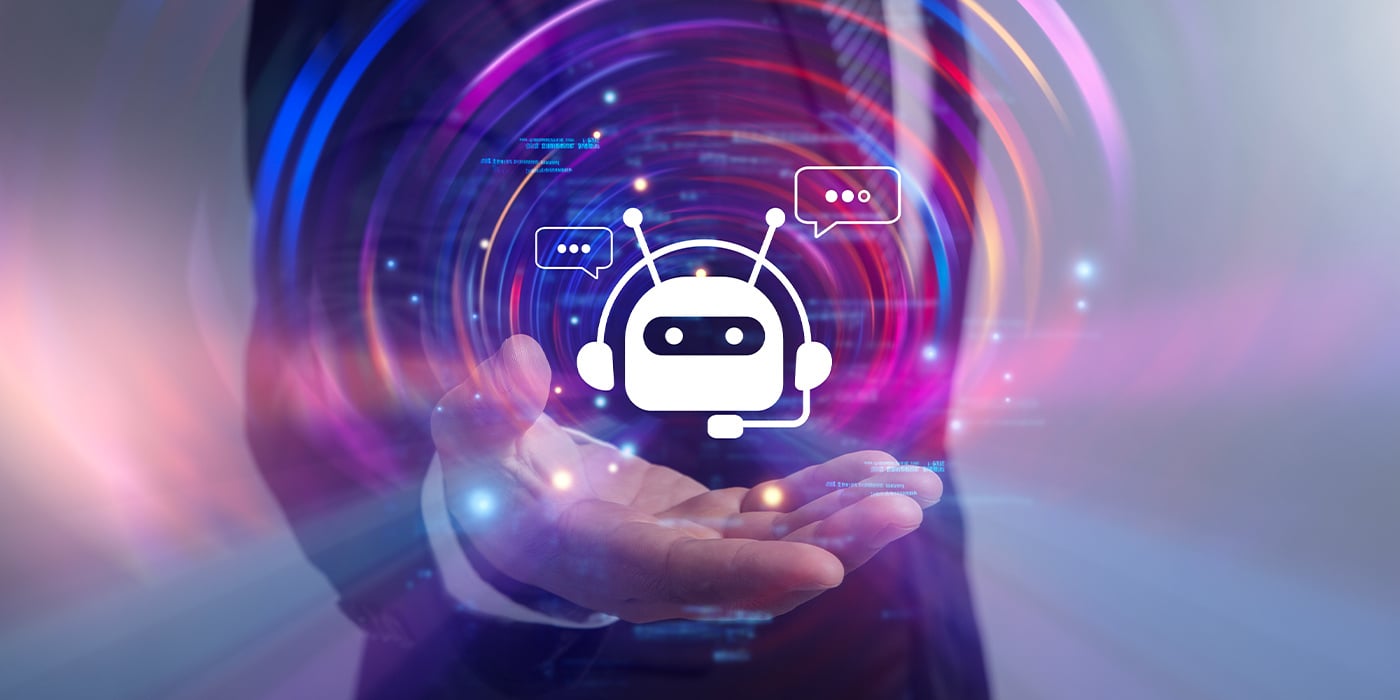Table of Content
TABLE OF CONTENTS

Modern-day customers demand exceptional experiences across all touchpoints. Customers want swift, seamless experiences across all touchpoints, and meeting these expectations has become a strategic priority for businesses. To meet these rising expectations, businesses increasingly use AI-powered automation to create hyper-personalized experiences, streamline support, and drive operational efficiency.
This article explores the transformative potential of AI-driven customer experience (CX) and provides insights on implementing intelligent solutions that boost satisfaction and business outcomes.
The evolution of customer service management (CSM)
Customer service management has undergone significant evolution over the last five decades. In the 1970s, customer service was primarily phone-based, with call centers handling issues via queues. By the 1990s, email support and live chat were introduced, opening new channels for interaction. As digital channels expanded in the 2000s, social media became a critical customer service channel, and software solutions began managing multi-channel support and KPIs. This rich history provides a comprehensive understanding of the industry's journey.
Today, we stand in the age of AI and advanced automation. AI-driven tools now handle everything from social media engagement to predictive analytics, offering personalized, real-time support on channels such as websites, mobile apps, and messaging platforms. AI-powered conversational assistants and self-service portals are transforming CX by increasing efficiency, enhancing user experience, and driving sales.
AI-powered automation has enabled organizations to:
- Automate routine tasks: AI can handle repetitive and time-consuming tasks, freeing human agents to focus on more complex and value-added activities.
- Provide 24/7 support: AI-powered chatbots and virtual assistants can provide round-the-clock assistance, ensuring customers always have access to support.
- Personalized interactions: AI can deliver tailored recommendations and experiences by analyzing customer data, enhancing customer satisfaction.
On-demand webinar
Automating Customer Service with Quiq: Empowering CX through Customer-Centric AI
Watch Now
Why implement an intelligent AI assistant for customer service?
AI-powered customer service offers several advantages that can directly impact an organization's bottom line:
- Cost savings: AI can significantly reduce labor expenses by automating routine inquiries and improving operational efficiency.
- Increased revenue: Intelligent assistants can boost conversion rates by cross-selling, upselling, and enhancing customer experiences.
- Improved customer satisfaction: AI-driven solutions provide around-the-clock support with personalized recommendations, enhancing customer relationships and satisfaction.
These benefits make AI-powered automation not only a strategic investment but also a competitive necessity in today's fast-paced market.
Creating seamless CX with AI-powered automation
To effectively leverage AI-powered automation for customer experience, organizations should focus on the following key components:
- Natural language processing (NLP): NLP enables AI assistants to understand and respond to human language, facilitating natural and intuitive interactions.
- Machine learning: Machine learning algorithms allow AI assistants to learn from customer interactions and improve their performance over time.
- Integration with existing systems: AI assistants should be seamlessly integrated with CRM systems, contact centers, and other relevant platforms to provide a unified customer view.
Enhancing customer support with an AI-powered assistant: A case study
The use of AI-powered assistants in customer service has revolutionized how businesses interact with customers. A case study involving a top retailer demonstrated the power of these assistants. By implementing an AI assistant capable of handling a high volume of customer inquiries, the retailer reduced overhead and improved efficiency by deflecting up to 50% of order-related questions.
The solution included a customized AI assistant integrated with internal APIs to access and display real-time order and inventory data. Key elements included:
- Conversational AI assistant: Configured to handle user inquiries and deliver relevant order details seamlessly.
- SSO authentication: Enabled secure user authentication for personalized interactions.
- Multipoint data integration: Connected with client API endpoints to retrieve critical customer and inventory data.
- Enhanced UI/UX: Redesigned assistant interface to improve user experience and interaction flow.
The implementation led to remarkable outcomes:
- Over 50% deflection rate for order tracking, inventory, and price adjustment inquiries.
- 20% overall deflection of inbound inquiries, saving approximately $7 million in support costs.
- Significantly reduced customer wait times and prioritized support for more complex inquiries.
This case study demonstrates how leveraging AI can transform customer support by optimizing resources, reducing costs, and improving overall customer satisfaction.
Use cases of AI in customer interactions
AI-powered automation offers valuable use cases across various stages of the customer journey, from pre-purchase to post-sale support:
- Pre-purchase assistance: AI assistants answer product questions, providing detailed, personalized responses that guide customers' buying decisions.
- Order tracking and payment handling: Customers can check order status and make secure payments within the chat interface, ensuring a smooth, in-channel experience.
- Post-delivery support: AI assists with warranty inquiries and other post-sale needs, fostering long-term customer satisfaction.
The future of AI in customer service
The future of AI-powered automation in customer service is promising. We can anticipate even more sophisticated and personalized experiences as AI technology continues to advance. Some emerging trends include:
- Multimodal interactions: AI assistants can interact with customers through multiple channels, such as voice, text, and video.
- Hyper-personalization: AI will enable organizations to deliver highly personalized experiences based on individual customer preferences and behaviors.
- Predictive support: AI can anticipate customer needs and proactively offer assistance, reducing customer effort.
Implementation methodology and best practices
Implementing an AI-driven CX solution requires a structured approach to design, build, and deploy AI assistants. Mastech InfoTrellis recommends a four-stage methodology:
- Design: Define the AI assistant's functionality, conversational domains, and user interactions.
- Build and Integrate: Develop the assistant, integrating it with external systems to access the necessary data and services.
- Test and Evaluate: Test the assistant across scenarios to handle various inquiries accurately.
- Deploy and Improve: Continuously monitor and refine the assistant's performance, using data-driven insights to enhance its effectiveness.
By following this methodology, companies can implement AI solutions that are efficient and adaptable to their customers' evolving needs.
Why partner with Mastech InfoTrellis and Quiq?
When implementing AI-powered automation, choosing the right partner is critical. Mastech InfoTrellis and Quiq bring extensive expertise in AI-powered customer service and a track record of successful implementations. Our customer-centric AI solutions help businesses streamline operations, improve CX, and achieve measurable results. From best practices in contact center automation to intelligent agent workspaces, we provide end-to-end support, ensuring that every AI solution is aligned with customer service goals and KPIs.
Conclusion
AI-powered automation has redefined customer service, enabling companies to deliver seamless experiences that resonate with today's customers. By investing in intelligent customer service solutions, businesses can reduce costs, increase revenue, and achieve higher levels of satisfaction. With ongoing advancements in AI and automation, the future holds even more potential for creating exceptional, personalized experiences at scale.
Watch our on-demand webinar to learn more about how AI-powered automation can transform customer service and create seamless experiences. Discover in-depth strategies, real-world case studies, and expert insights from industry leaders on implementing intelligent customer service solutions that drive results.
Tags
Customer Service
Blake Hines
GM & VP, CX Practice
Blake is the General Manager and Vice President of our Customer Experience practice, where he manages the integration of sales and delivery teams, offerings, and partnerships. He has managed over 1,000 Customer Experience implementations globally in his career, focusing on driving KPI-driven outcomes for his client's customer service, field service, sales, marketing, analytics, and AI needs.
-2.jpg?width=240&height=83&name=Menu-Banner%20(5)-2.jpg)
.jpg?width=240&height=83&name=Menu-Banner%20(8).jpg)

